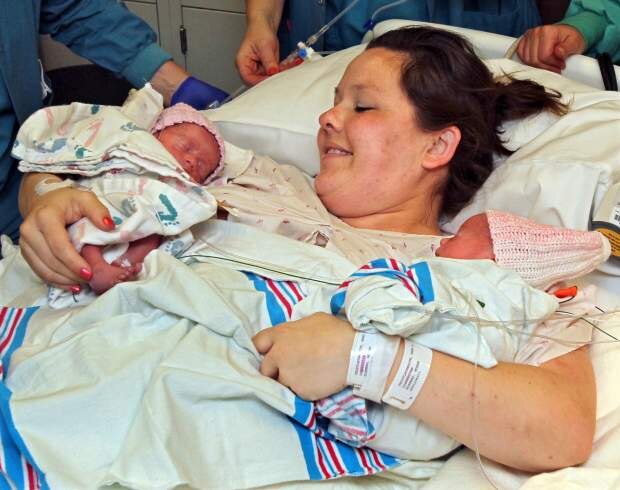Explorer
Advertisement

Why some women have twins while others don't, mystery unfolded

New York: Researchers have identified two genes that can explain why some women are likely to have non-identical twins.
While it is known that if a woman's female relatives have non-identical twins, she is more likely to give birth to twins herself, the genes behind this phenomenon have remained a mystery.
"There's an enormous interest in twins, and in why some women have twins while others don't," said one of the researchers Dorret Boomsma, biological psychologist at Vrije Universiteit (VU) Amsterdam in the Netherlands.
"The question is very simple, and our research shows for the first time that we can identify genetic variants that contribute to this likelihood," Boomsma noted.
The findings appeared in the journal American Journal of Human Genetics.
With these results, the team hopes to develop a genetic test to identify women at risk for this condition.
For the study, the international team of researchers aggregated genetic data from twin databases in the Netherlands, Australia, and the US.
The sample totalled 1,980 mothers of fraternal (commonly known as non-identical) twins conceived without fertility treatments and 12,953 controls.
The researchers were looking for genetic variants, shared by mothers with twins, that showed a different frequency from those in the control groups.
Once the researchers had identified a handful of candidates, they sent the results to collaborators in Iceland, who crunched the numbers on their own set of 3,597 mothers with twins and 297,348 controls.
Two of the gene variants were replicated in the Icelandic cohort, appearing more often in the mothers with fraternal twins conceived without fertility treatments.
One of the variants, located near a gene called FSHB, is associated with higher levels of follicle-stimulating hormone (FSH).
This hormone triggers follicle growth in a woman's ovaries, eventually leading to an egg being released - and with higher FSH levels, multiple eggs may be released at the same time, leading to twins if two get fertilised.
The second genetic variant, in a gene called SMAD3 involved in cell signalling, probably plays a role in how the ovaries respond to FSH, Cornelis Lambalk, gynecologist at VU Medical Centre Amsterdam, said.
If a woman produces an average level of FSH, but her ovaries are more sensitive to the hormone, she may still release multiple eggs at a time.
"This genetic variant is totally novel and hadn't been shown before as a candidate gene for twinning," first author on the study Hamdi Mbarek, geneticist at VU Amsterdam, noted.
Follow Lifestyle on ABP Live for more latest stories and trending topics. Watch breaking news and top headlines online on ABP News LIVE TV
View More
Advertisement
Advertisement
Advertisement
Top Headlines
Results
Delhi NCR
Results
Cricket
Advertisement
Trending News

for smartphones
and tablets
and tablets

Amitabh Tiwari
Opinion



































